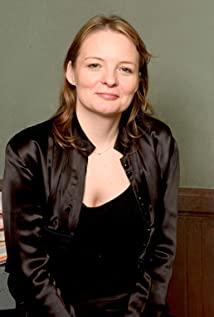Women are familiar with the words in "Pride and Prejudice", and men often remember the plot and lines in "The Godfather", which may also be evidence of the difference between men and women.
Tom Hanks' chain bookstore is a representative of capitalism. It has a grand storefront, stylish decoration, discounts, promotions and gifts, and various activities. The business is booming as soon as it opens, and capital is invincible in creating profits; Meg Ryan is also the bookstore shopkeeper , she inherited a small corner bookstore handed down by her mother, similar to European temperament, like a small shop that goes to make soy sauce every day, it is part of the surrounding community, full of warmth. However, warmth is no match for capital. In front of large chain bookstores, there is absolutely no living space for small corner stores. In the end, they were cleared and sold and closed. At the end of the movie, Tom Hanks should have succeeded in holding hands. I think capitalism not only wants to steal your business, but also recruit your shopkeeper.
The two of them met through the Internet chat that was just emerging at the time - which is also the origin of the movie's name - interestingly, Amazon, which started by selling books, was not long after its establishment, and it seemed that it did not attract much attention from anyone. It is conceivable that this company has rapidly grown into a giant in the Internet world. The blow it has caused to the traditional publishing industry and brick-and-mortar bookstores is disastrous. Whether it is Tom Hanks's or Meg Ryan's bookstores, they are facing the dilemma of closing their doors.
Selling books on the Internet saves the maintenance cost of physical bookstores, and the book price advantage is obvious. When Amazon has formed its own scale effect, it in turn requires the publishing house to lower the book price, so that it can maintain the price advantage for a long time, and it is difficult for the physical bookstore to compete with it. ; Later, when electronic publishing was launched, Amazon directly bypassed the publishing house, and content providers could publish their own works directly on the Amazon platform, which made the practitioners in the traditional publishing industry even more hungry.
In one episode, after the bookstore closed, Meg went to the house of an old lady who was a former employee. The old lady said that she was very rich because she owned Intel stock, and she said I bought Intel at six.
Although the film is positioned as a light comedy of love, the screenwriter's ambition seems to be more than that. She may also prefer the warmth of the small bookstore on the corner, but she is still helpless in the face of the commercial tide.
I bought Intel at six. Interesting to think about.
View more about You've Got Mail reviews











